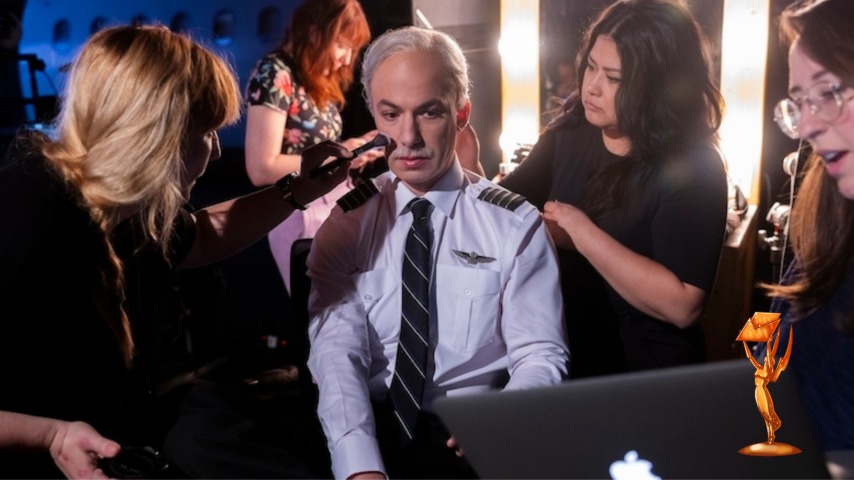Is Nathan Fielder's directing in The Rehearsal just crazy enough to win an Emmy?
"What you're about to witness is going to seem weird."
Photo: John P. Johnson/HBO
A key tenet of creating comedy is escalation. How do you take an idea and stretch it to its extreme, surreal conclusion? For two seasons, Nathan Fielder’s The Rehearsal has practiced this on scales grand and small. The comedian’s pitch to the audience in the series premiere was: What if you could really practice a potentially awkward or embarrassing social situation in advance? Cut to season two as Fielder flies a commercial airliner alone across the Atlantic. But this constant ratcheting up happens within individual episodes, and there is perhaps no episode that put this to better use than “Pilot’s Code.”
The episode, which earned Fielder an Emmy nomination for directing, comes in the middle of his quest to improve airline safety by doing the same with communication between pilots. This premise is mostly sidelined in “Pilot’s Code,” which instead goes eccentrically philosophical with the question: How can we really understand what goes on in another person’s head? The episode begins with a couple who cloned a beloved pet dog but are unhappy that it does not behave like its progenitor. Our host, using his much-ballyhooed Fielder Method, attempts to recreate the exact circumstances of the first dog’s upbringing, hiring actors (and animals) to replicate the couple’s home as it was in 2011. Then he schemes to do the same with himself but as Captain Sully Sullenberger, the pilot behind the Miracle On The Hudson landing.
 Keep scrolling for more great stories.
Keep scrolling for more great stories.
